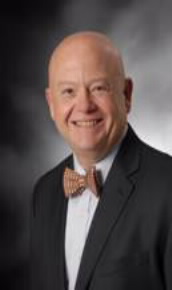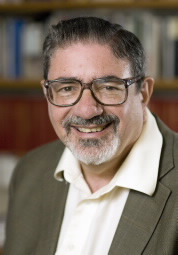FOR IMMEDIATE RELEASE | February 26, 2009
American Chemical Society seeks transformative impact on science education in the U.S.
WASHINGTON, Feb. 26, 2009 — The American Chemical Society has created a Board-Presidential Task Force on Education to identify a unique role for the world’s largest scientific society in transforming education in the United States. The task force’s charter calls upon it to review recommendations contained in STEM (Science, Technology, Engineering, and Mathematics) reports released in the last five years, to identify specific actions the ACS might take to implement those recommendations, and to create a list of priorities to determine areas where the Society might have a unique impact on STEM education.
Mary Kirchhoff, director of the ACS Education Division, says “the creation of the Task Force comes at an opportune time in light of the new administration’s goal to make math and science education a national priority.”
The task force – created in late 2008 – grew out of discussions among then ACS President Bruce Bursten, Chair of the Board of Directors Judy Benham, and Society Committee on Education Chair Bryan Balazs. It is led by Richard Zare, chair of the chemistry department at Stanford University and a prominent researcher and educator. ACS President Tom Lane notes that “including K-12 teachers on the task force ensures that the voice of primary and secondary educators is heard as the Society considers its unique role in advancing science education.” The task force is slated to report its findings at the ACS National Meeting in Washington in late August.
The task force’s charge extends across all educational levels, from primary through graduate and post-graduate science studies, as well as continuing professional development and more informal science education forums, such as museums and programs sponsored by civic and special interest groups. The charter states: “A commitment to elevating the Society’s role in education must be based on a rigorous assessment of present and future needs in education and a creative action plan for bringing the material and intellectual resources of the Society to bear in those areas where they can have the greatest effect.”
Zare, the task force’s chair, is determined “to create a report that recommends practical actions” that promote education. He says that “in the past too many such efforts ended up as reports that collect dust. I am determined not to let this happen to the efforts of this task force; the ACS and the country just cannot afford to take no positive actions.
The task force welcomes input from the science and education communities, and suggestions can be made at educationtaskforce@acs.org.

The ACS has long championed science education, and the creation of the task force reflects that commitment. The Society has created or promoted a number of education programs over the years, including Project SEED (Summer Experiences for the Economically Disadvantaged), the U.S. National Chemistry Olympiad, teacher training, Kids and Chemistry programs that help scientists work effectively with youngsters, innovative textbooks and curricula, High School Chemistry Clubs, and Student Affiliates chapters for undergraduates. A full slate of programs and activities can be found at www.acs.org/education.
# # #
The American Chemical Society Task Force on Education:
Chair: Richard N. Zare, Stanford University, Palo Alto, Calif.
Vice-Chair: Melanie Cooper, Clemson University, Clemson, S.C.
Members:
Magid Abou-Gharbia, Temple University, Philadelphia, Penn.
Norman R. Augustine, Lockheed Martin Corp. (retired), Bethesda, Md.
Bryan Balazs, Lawrence Livermore National Laboratory, Livermore, Calif.
Uma Chowdry, DuPont, Wilmington, Del.
Arthur B. Ellis, University of California-San Diego, San Diego, Calif.
Bruce Fuchs, National Institutes of Health, Bethesda, Md.
Joseph A. Heppert, University of Kansas, Lawrence, Kan.
Thomas B. Higgins, Harold Washington College, Chicago, Ill.
Steven Long, Rogers High School, Rogers, Ariz.
Shirley Malcom, American Association for the Advancement of Science, Washington, D.C.
Saundra McGuire, Louisiana State University, Baton Rouge, La.
Barbara Sitzman, Granada Hills Charter High School, Los Angeles, Calif.
Deborah VanSumeren, Lindsay Elementary School, Bay City, Mich.
Ex officio:
Judith L. Benham, Chair, ACS Board of Directors, St. Paul, Minn.
Bruce E. Bursten, ACS Immediate Past President, Knoxville, Tenn.
Thomas H. Lane, ACS President, Midland, Mich.
Staff: Mary M. Kirchhoff, ACS, Washington, D.C.


